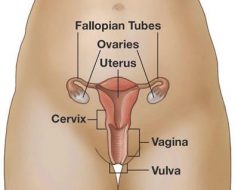Two nationwide programmes in Georgia and Iceland, which were designed to eliminate hepatitis C virus (HCV) at the population level, have reported encouraging results, suggesting that these countries could be on target to achieve their elimination goals. Although both programmes have adopted slightly different approaches, both have reported high levels of engagement, initiation of direct-acting antiviral agents (DAAs), and cure among patients chronically infected with HCV.
Worldwide, 71 million people are estimated to have chronic hepatitis C infection, resulting in an estimated 700,000 deaths per year from hepatocellular carcinoma or cirrhosis. The availability of oral, well-tolerated DAAs that can achieve cure rates of over 95% has led to the development of World Health Organization (WHO) elimination targets that propose a 90% reduction in HCV incidence and a 65% reduction in HCV-related mortality by 2030.
Georgia programme: latest data
The world’s first hepatitis C elimination programme was initiated in Georgia in collaboration with the US Centers for Disease Control and Prevention (CDC), and with a commitment from Gilead Sciences to donate DAAs.15 The programme was initiated in April 2015, and the results from its first 2 years in action were presented today at The International Liver Congress 2018 in Paris, France.
“In Georgia, we have set out to achieve 90-95-95 targets by 2020, which means that we want to diagnose 90% of all HCV-infected individuals, we want to treat 95% of those diagnosed, and we want to cure 95% of those treated,” explained Professor Tengiz Tsertsvadze from the Infectious Diseases, AIDS and Clinical Immunology Research Center in Tbilisi, Georgia. “We had previously estimated that there were around 150,000 adults with HCV infection living in Georgia, which represents a prevalence in our population of 5.4%”.
Hepatitis C screening programmes began in Georgia in 2015 and, by the end of April 2017, 43,989 individuals (29.3% of the estimated total population) had been diagnosed with HCV infection and registered with the elimination programme. A total of 33,673 individuals had initiated treatment with DAAs, and 24,273 individuals had achieved a sustained virological response (SVR), i.e. were cured.
“In the first 2 years of this programme, we have diagnosed more than one-quarter of our HCV-infected adults in Georgia, we have treated 77% of those diagnosed, and cured over 95% of those completing treatment,” said Prof. Tsertsvadze. “Our priorities now are to develop innovative strategies to increase awareness, expand access to high-quality screening, and remove diagnostic and treatment barriers.”
Iceland programme: first results
The Treatment as Prevention for Hepatitis C (TraP HepC) programme was initiated in Iceland in January 2016 with the aim of eliminating chronic HCV infection as a public health threat in Iceland.17 The programme prioritizes treatment for people who inject drugs (PWID), patients with advanced liver disease, and prisoners, and treats patients who relapse or become reinfected promptly.17 The study presented today assessed the impact of the TraP HepC programme on the prevalence of active HCV infection among PWID admitted to the Society of Alcoholism and other Addictions’ (SÁÁ´s) Vogur Hospital, Iceland’s largest addiction treatment centre, where more than 90% of PWID in the country are treated. During the first 15 months of the programme, 554 individuals with HCV infection were evaluated and DAAs were initiated in 518 individuals, with 473 (91.3%) completing treatment and 96% of these remaining HCV RNA negative at 12 weeks post-treatment, therefore cured of HCV infection. The prevalence of active HCV infection (viraemia) among PWID at Vogur Hospital showed a dramatic 72% reduction, from 43% in 2015, prior to initiation of the TraP HepC programme, to 12% in 2017.
“Encouragingly, even in individuals with recent intravenous drug use, DAA treatment, although challenging, resulted in an 87% cure rate, including in those that did not complete the treatment regimen,” said Dr. Valgerdur Rúnarsdóttir from Vogur Hospital in Reykjavík, Iceland. “People who inject drugs are key drivers of HCV infection in Iceland and this population should be a focus of treatment scale-up. We would like to emphasize and encourage collaboration between addiction treatment centres in both screening and treating HCV. This is key to success in reaching the population in focus.”
“There is no doubt that this is a challenging programme, but we believe it has been initiated successfully in Iceland and that we are well placed to achieve our elimination goal.”18
Source: Read Full Article





